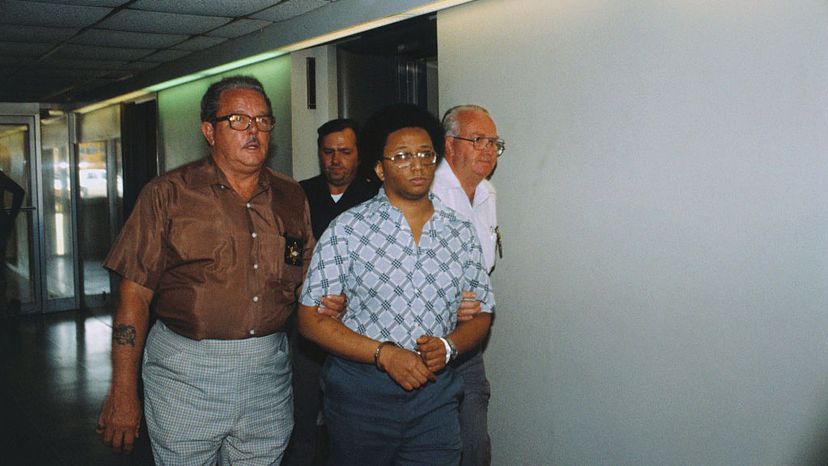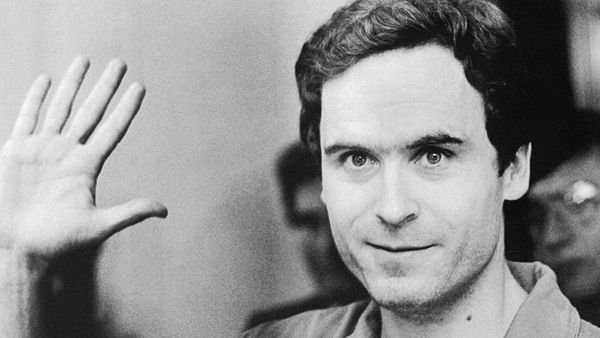
For more than 35 years, Wayne Bertram Williams has lived behind bars, shut away for kidnapping and slaying some 30 Atlantans between 1979 and 1981. The victims were typically male, black, poor, and between 9 and 14 years of age, and the crimes terrified Atlanta's African-American community. But did police nab the real murderer?
A lot of people don't think so. Many believe Williams killed some, but not all, of the victims. And Williams has always proclaimed his innocence regarding the child victims. In hopes of unearthing the truth, Payne Lindsey and Donald Albright created the 10-episode podcast Atlanta Monster. The duo, founders of Tenderfoot TV, already have had some success in this regard. Their 2016 true-crime podcast, Up and Vanished, elicited new information about the 2005 cold-case murder of Tara Grinstead, a Georgia teacher, that led to two arrests. Lindsey and Albright hoped Atlanta Monster would be as successful in this other case.
Advertisement
And it looks like the first step to determining if Williams is the lone killer is now underway. Atlanta Mayor Keisha Lance Bottoms announced in a press conference Thursday, March 21, 2019 that the City of Atlanta, Fulton County and the Georgia Bureau of Investigation will be taking another look at the decades-old child murders in hopes that new technology breakthroughs might provide evidence to who killed the children. The goal she said, is not to vindicate Williams, but instead, "to give some peace — to the extent that peace can be had in a situation like this — to the victims' families."
So what makes the Williams case murky? When the murders began in July 1979, boys were vanishing during the day in public locales; their bodies were later found dumped in remote areas. These common threads pointed to a single serial killer. But by the spring of 1981, the killer appeared to change strategies and started throwing the victims' bodies in the Chattahoochee River. Law enforcement officials began staking out the 14 bridges in Atlanta's metro area.
One night in May 1981, shortly before 3 a.m., a group on surveillance heard a splash. Then a car sped back and forth across the bridge. The driver was Williams, a 23-year-old African-American freelance photographer. With no evidence, the officials couldn't detain him. But when the body of a 27-year-old man was discovered downstream two days later, Williams became the prime suspect in not only that murder, but as the serial killer terrorizing greater Atlanta.
Williams had a shaky alibi, and investigators subsequently linked him to some of the victims through hair and fiber analysis. Eventually Williams was convicted of killing two adult men. However, the court also allowed the prosecution to connect the murders of 10 Atlanta boys to this case, even though Williams was never officially charged with killing them. Williams was imprisoned in 1982 and the murders of the young black boys stopped. Law enforcement officials later linked him to 20 more of the deaths, although the links were circumstantial.
Sounds pretty damning, but not everyone is convinced. Williams has steadfastly insisted he didn't kill the kids. And there never was enough evidence to convict him of any of their deaths. Hair and fiber analysis, especially as the basis of a murder conviction, has proven notoriously unreliable; according to a 2015 study by the U.S. Department of Justice, FBI, the Innocence Project and the National Association of Criminal Defense Lawyers, at least 90 percent of FBI testimony on hair analyses contained errors.
In addition, while most of the Atlanta Child Murder deaths occurred in Fulton County, five happened in neighboring DeKalb County, and that police department has kept its investigations open. Authorities won't say why, or if they believe Williams is responsible. But their actions raise a question mark as to whether there were additional murderers and not one serial killer.
Perhaps most eyebrow-raising, though, is information from a 1986 article in SPIN. The piece says that a secret investigation by the Georgia Bureau of Investigation in 1981 resulted in strong evidence that the Sanders family, who were part of the Ku Klux Klan, had killed as many as 15 young black boys in the hopes of starting a race war. The evidence included tape from a wiretap in which one family member told another he was going out to look for "another little boy." But out of fear that this revelation would trigger racial violence in the city, the group terminated its investigation and sealed its findings. Thus, the Klan evidence was withheld from Williams' defense team.
Advertisement


